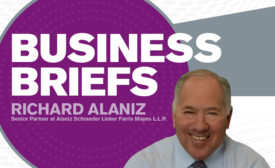Home » employment laws
Articles Tagged with ''employment laws''
More information on what employers need to know now
Read More
The Push for $15/Hour, and the Impact on Employers
Employers need to prepare now for the challenges a higher minimum wage would bring
Read More
With New California Law, Equal Pay Becomes More Complicated
Employers should take some time to understand the different laws that could impact them
Read More
Dotting the I’s and Crossing the T’s: Employment Records You Must Have
Companies have significant responsibilities to create and maintain employee records
Read More
Planning for New Overtime Rules
What to expect and how to prepare for the DOL’s changes to the overtime rules
Read More
Advantages and Pitfalls of Using Employee Arbitration to Eliminate Class Actions
It is important for employers to understand the pros and cons of arbitration agreements
Read More
A Bouncing Bundle of… Discrimination Claims?
After Supreme Court ruling, it may be time to rethink pregnancy-related disabilities policies
Read More
Bonuses, Overtime, Post-Work Activities, and the FLSA
Staying on Top of Evolving Laws and Regulations
Read More
A ‘Year of Action’ Leads to Years of Regulation
Another Executive Order Increases Compliance Headaches for Federal Contractors
Read More
Maintaining Wage and Hour Compliance in 2013
Be Sure to Comply With All Applicable Federal and State Laws
Read More
Copyright ©2024. All Rights Reserved BNP Media.
Design, CMS, Hosting & Web Development :: ePublishing




